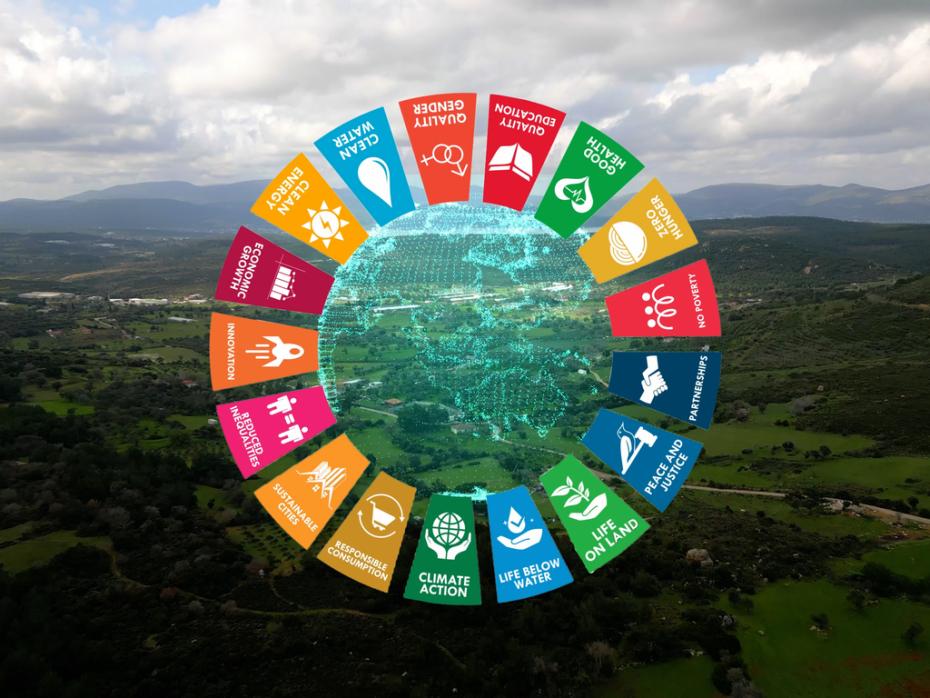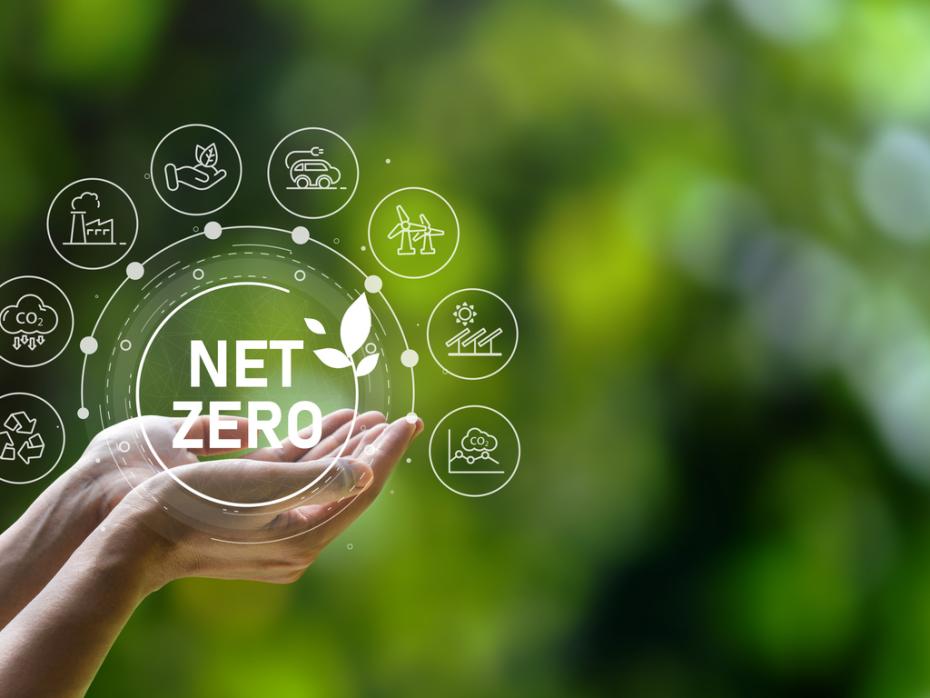
The need for integrated thinking at universities: from Covid-19 to the SDGs
A joined-up approach between universities, public services and businesses – as successfully demonstrated during the pandemic – is now needed if institutions are to accelerate efforts towards the Sustainable Development Goals
Universities have a vital role in addressing global challenges and advancing the United Nations’ Sustainable Development Goals (SDGs). They have research expertise, teaching capacity and community engagement networks necessary to drive meaningful change. However, turning this potential into action requires strategic focus.
Throughout the Covid-19 pandemic, universities worldwide helped societies navigate the crisis. In the UK, medical schools supported the National Health Service (NHS) and social care services, providing additional medical personnel, from clinical academics to final-year students. Newly qualified healthcare professionals were fast-tracked into service. Universities offered remote learning, free online courses, webinars and digital literacy programmes. They contributed evidence-based research and policy recommendations to guide government responses on healthcare, economic recovery and social welfare. Many institutions launched public health campaigns to raise awareness about vaccination, mask wearing and social distancing.
The integrated thinking that connected higher education with government and public services during the pandemic is now needed if universities are to play an instrumental role in achieving the SDGs. The recent white paper Measuring the Impact of UK HEIs Against the UN Sustainable Development Goals, commissioned by the University of the West of Scotland (UWS), explores how UK universities are addressing these goals. It provides detailed analysis of university performance across regions and by institution type. The paper examines the alignment of UK university research with the SDGs and highlights best practices in sustainability within the sector.
Institutions must focus efforts in these six key areas if they are to drive progress towards the SDGs:
1. Leverage academic expertise to drive local sustainability
Universities can encourage academics to collaborate with businesses and community organisations in seeking and developing more sustainable practices or solutions to accelerate progress towards the SDGs. The creation of interdisciplinary hubs or working groups focused on applied research and community collaboration can underpin this work. Where institutions can secure external funding, they can offer subsidised training and support in green skills relevant to local industry.
Through our 2022 initiative, which aimed to embed sustainable practices across South Ayrshire, 30 local organisations received fully funded consultancy and training on decarbonisation and sustainability. As a result, participants became “carbon champions” – professionals trained to assess environmental impact, identify opportunities for improvement and lead sustainability efforts within their own organisations.
2. Embed sustainability deeply within curriculum
Integrating sustainability into education requires more than adding new content; it means reshaping how students understand their discipline in the context of global challenges. As the climate crisis, social inequalities and economic instability grow, graduates must be equipped not only with subject expertise but with systems thinking, ethical reasoning and the capacity to act.
For one of our accounting modules, for instance, students were tasked with researching biodiversity initiatives across UK universities and submitting suggestions for developing a biodiversity plan at our own institution. Suggestions included forming partnerships with external environmental organisations, promoting afforestation, restoring habitats and improving engagement through transparent reporting. The project gave students a real-world platform to apply their knowledge and influence institutional policy – an empowering, authentic learning experience that strengthened their sense of ownership and impact. These ideas were presented to the university’s sustainability officer and ultimately contributed to the university’s official biodiversity strategy.
- How strategic sustainability can foster innovation
- THE podcast: educating our way out of the climate crisis
- On climate change, are universities part of the problem or part of the solution?
3. Invest in sustainable infrastructure
Investment in environmentally responsible infrastructure must be a priority for construction and renovation projects. Strategies include: designing buildings that use recyclable materials such as sustainable wood and steel; maximising energy efficiency with natural light, passive ventilation and smart systems for lighting, heating and cooling; installing motion-sensor lights, smart meters and automated energy systems; and embracing renewable energy technologies such as solar panels paired with battery storage for enhanced energy independence. Our Lanarkshire campus, completed in 2018, is fully carbon neutral and powered entirely by renewable energy from the nearby Blantyre Muir wind farm. The campus features rainwater harvesting, photovoltaic panels, a building management system, electric vehicle charging stations and compostable cutlery. These efforts not only reduce emissions and operational costs but enhance institutional reputation and create hands-on learning opportunities for students.
4. Collaborate with government, businesses and NGOs
Partnerships with external stakeholders are vital for aligning research with SDG targets and influencing public policy. One strong example is the UWS-Oxfam partnership, which links the university’s research capabilities with the charity’s social justice advocacy and expertise in tackling poverty. The partnership has evaluated the impact of public policies on issues such as sustainability, equality and social justice, offering evidence-based recommendations to inform policymaking in Scotland. By engaging with civil society organisations and policymakers, universities can ensure their scholarship contributes to creating a fairer, more sustainable world.
5. Implement institution-wide sustainable practices
To lead by example, universities should adopt sustainability strategies across all campus operations. This includes reducing carbon emissions through green building design, energy efficiency measures and investment in renewables. There should be a focus on sustainable transport by promoting walking, cycling, carpooling and electric vehicle infrastructure. Waste management can be improved through clear recycling programmes, composting, zero-waste goals, reuse initiatives and certified e-waste recycling. “Tech takeback” schemes enable students and staff to responsibly dispose of old electronics, reducing e-waste. Universities can promote sustainable food systems by sourcing local and organic produce, offering more plant-based options and supporting campus gardens or farms. All these practices combined not only reduce environmental impact but foster a culture of sustainability among students and staff.
6. Engage communities through training, workshops and outreach
Universities can amplify their sustainability impact by organising educational initiatives that engage the academic community and the public. These could include workshops on practical topics such as upcycling, community gardening and home energy audits; training programmes that build capacity in environmental education, sustainable design and green entrepreneurship; and outreach activities such as eco-fairs, public lectures, school visits and community clean-ups to raise awareness and inspire collective action. These initiatives encourage collaborative problem-solving and empower participants with real-world skills. Plus, they promote civic responsibility and leadership among students, positioning universities as active contributors to sustainable regional development.
By focusing efforts across these six key areas, universities can be at the forefront of global sustainable development efforts, offering not only academic knowledge but also practical solutions that move the world closer to achieving the SDGs.
Abeer Hassan is professor of accounting at the University of the West of Scotland.
If you would like advice and insight from academics and university staff delivered direct to your inbox each week, sign up for the Campus newsletter.




